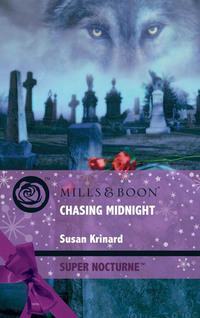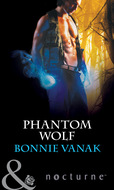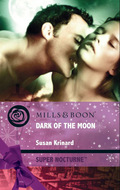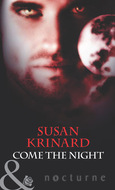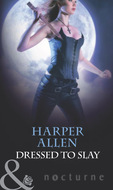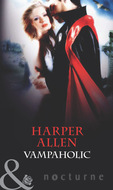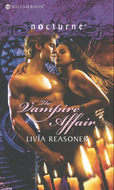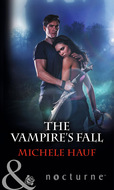Das Buch kann nicht als Datei heruntergeladen werden, kann aber in unserer App oder online auf der Website gelesen werden.
Buch lesen: "Chasing Midnight"
He wrapped his fingers behind her neck, pulled her against him and kissed her, hard.
She gave him exactly what he wanted, melting into him with a little gasp of admiration.
“There’s more where that came from,” he said, rising from his chair. “You stay right where you are.”
He strutted off like a peacock, all broad shoulders and jutting chin. He thought he’d won the prize with his natural charm and good looks. Men like him always assumed that any girl, even the most sophisticated flapper, would fall for them if they so much as crooked their fingers…
Dear Reader,
What is it about the nineteen twenties?
For me, the fascination began with my first viewing of the movie Chicago, starring Catherine Zeta-Jones. Before then, I’d never given the decade much thought. I knew about Prohibition, of course, and flappers, but it all came alive when Ms Zeta-Jones performed “All That Jazz.” I was hooked.
The Roaring Twenties was a remarkable period. It was the time when the old rules of Victorian America gave way to the new rules of the twentieth century. It was the age when women first began to vote, when the “working girl” came into her own, when music and art were undergoing startling transformations. The West was still recovering from the trauma of the Great War, finding its way into a strange new world. In New York and Chicago and the other great cities, mobsters made fortunes from bootlegging. There was a flourishing underworld of clubs and speakeasies where the daring and fashionable could quench their thirst for alcohol and excitement.
What better place to set a story about werewolves and vampires in conflict but Prohibition-era New York, where the mobs of three very different races compete for dominance? The first image that immediately sprang into my head was one of a vampire flapper with a Louise Brooks bob, dressed in a short skirt and highheel pumps…a young woman who couldn’t be bothered with the restrictions of either human society or her own vampire clan. And who should her romantic interest be but a rather old-fashioned and chivalrous werewolf who has his own issues with the loups-garous of New York…and who finds himself falling for a girl who seems to be doing everything possible to drive him crazy?
With those characters and situations firmly in my mind, Chasing Midnight was born. I’ve seldom had so much fun writing a book. I hope you’ll give the Roaring Twenties a try; I’ll be revisiting them in my next paranormal romance novel for Mills & Boon® Super Nocturne™, which will be arriving on book shop shelves in December 2009.
Susan Krinard
CHASING
MIDNIGHT
BY SUSAN KRINARD

MILLS & BOON
Before you start reading, why not sign up?
Thank you for downloading this Mills & Boon book. If you want to hear about exclusive discounts, special offers and competitions, sign up to our email newsletter today!
Or simply visit
Mills & Boon emails are completely free to receive and you can unsubscribe at any time via the link in any email we send you.
Prologue
New York City, 1924
SHE WOKE TO THE SOUNDS of the street: the honking of horns as taxicabs, sedans and roadsters jockeyed for position; the rattle and rumble of trucks bearing cargo both legitimate and illicit; the shouts of the newsboy on the corner, trumpeting the scandalous details of the latest police raid on Joe Bocelli’s Club Desirée.
She lay quietly for a moment, eyes closed, trying to decide what was different. It wasn’t only that the sounds were so distinct, falling on her ears like drumbeats, or that she could feel the shift of every current of air as it brushed against her skin. It wasn’t only that, for the first time in so many years, her body didn’t hurt.
With a groan of pleasure she extended her arms over her head, feeling muscles stretch and bones pop. Her toes tingled. She wiggled them, delighting in the touch of the satin sheets against her skin.
And then she froze as the realization struck her so hard and fast that it stole her breath.
She had moved. Not with stiff, painful jerks, her limbs refusing to obey her simplest commands. Not with withered muscles wasting away, prisoners in a cage of flesh. She had moved easily, smoothly, strength flowing through her like cascades of fresh cool water.
Slowly she opened her eyes. The room should have been dark; no lamps were on, and the shades and curtains were drawn over the windows. But she saw everything with crystal clarity, as if the entireworld were bathed in light. Every detail of the Persian carpet stood out in elegant relief. The pattern of the wallpaper seemed to dance a geometric ballet. And the man in the chair…
Alice sat up, her heart bounding beneath her ribs. The man in the chair gazed at her with a faint smile, his pale eyes reflecting a dim red glow.
“Alice,” he said, “do you remember?”
She rubbed her eyes, caught by a wave of dizziness that made the bed roll and heave beneath her. An hour, a week, a year ago, she had been lying in this same bed, her limbs like dead weights among the sheets, her mouth filled with words she could barely speak. He had been there, looking down at her with an expression both kindly and grim, and she had been afraid.
“There is always a risk,” he’d said back then. “Especially to one in your condition. But the rewards…” He’d gestured at her twisted body. “The rewards are beyond calculation.You will walk again, Alice.You will be free.”
And alive. If she should awaken from the long sleep he had told her about, she would no longer be facing imminent death at the age of twenty-four. Shewouldn’t spend another year in bed, her legs no longer able to support her body, her hands too weak to hold a book, listening to the sounds of life passing by her window. There would be a new existence awaiting her, one she could scarcely imagine. She would be better than before, even better than if she’d grown up without the disease that had stolen her friends, her family, her hope.
“You will have a new family,” he’d told her. “The old loyalties will fall away, the old rules by which you lived. You will never be able to go back.”
She’d shivered. “I have…nothing to lose,” she’d said, pushing the sounds past the thickness in her throat.
He’d nodded, as if he had expected no less from her. “Make no mistake,” he’d said, “you will die.You will no longer breathe. Your heart will cease to beat. If a doctor were to enter this room, he would pronounce you deceased.”
Tears had leaked from the corners of Alice’s eyes. “I understand.”
“I doubt that you do,” he’d said sadly, “but there is no other way for your body to undergo the change. Either you will wake in this bed, or…”
Or she would not wake at all. But she would have died knowing that she had taken the ultimate gamble and spat in the eyes of all the pitying, privileged “friends” who had deserted her to the slowdescent into hell.
Mother won’t even know I’m gone, she’d thought. And if she ever comes looking for me…
Alice had smiled, her mouth too stiff for laughter. “I’m ready.”
He’d taken the chair beside the bed and looked into her eyes. “There will be no pain. You will become very sleepy. Don’t fight it, my dear. Let it take you.” He’d bent close, his not-unpleasant breath drifting over her cheek. “Close your eyes and dream of paradise…”
Alice snapped back to the present, her hands shaking on the bedsheets. She clenched her fists and listened to the steady, strong beat of her heart…her heart, still doing what hearts were supposed to do. Her lungs still took in air. Except for the easy movements of her limbs and throat and face, she seemed to be the same as before.
“To most humans you will seem normal,” Cato said. “Despite certain fairy tales to the contrary, you are not ‘undead.’” He rose from the chair, came to her bedside and took her hand in his, checking her pulse like a kindly physician. “You may eat and drink in moderation, so long as you do not neglect your most essential needs. You may walk in daylight so long as you wear tinted glasses and cover your skin. Even brief exposure will result in serious burns. That is why most of us prefer to conduct our public business after sunset.”
Alice stared at the window. Only the tiniest sliver of light entered past the heavy curtains. “How—” she cleared her throat, startled by the smooth, musical sound of her own voice “—how long was I…”
“Dead?” He patted her hand. “Two weeks. I was not entirely certain that you would wake. But now…” He stood back. “Rise and walk, AliceCharles.”
Her mouth as dry as cotton, Alice began to move. She slid her legs along the mattress and cautiously let them drop over the side of the bed. The ground seemed very far away. She flexed her feet on the carpet.
“Your body has the strength,” Cato said. “Far more strength than you need to walk across this room.” His words took on a strange hum, like some powerful generator crackling with energy. “Prove that you are worthy of this gift. Walk!”
Compelled by a force far stronger than fear, Alice pressed her weight down, felt her muscles tighten and grow firm at her command. She stood, swayed, straightened. She took one step, and then another. Her legs carried her to the opposite wall and back again without a single stumble.
I can walk, Alice sang silently. I can walk, I can walk, I can walk…
“Yes,” Cato said, a distant look in his eyes. “I need no further proof.” He took her shoulders and steered her toward the huge mirror that dominated the wall above the dressing table. “Look,” he urged. “See what you have become.”
She looked, though she had not viewed her own reflection in many years. The face that stared back at her was almost unrecognizable, as if some skilled and prudent sculptor had taken her features and rearranged them into something that was partly AliceCharles and partly something…other. Something beautiful. The lines of her features were clean and regular, her skin smooth, her brow unlined over vivid aqua eyes. Her hair, black and shining, hung downher back like ebony silk. Andher body, clearly outlined by the sheer drape of her night robe, was both strong and intensely—unmistakably—female.
“Lovely,” Cato said, lifting her hair in his hands and letting it sift through his fingers. “So much more than I had hoped.”
He gestured Alice back to the bed and sat down beside her. “There is still a great deal for you to learn, my dear, and I will be your teacher until you have passed beyond your infancy…shall we say.” He lifted her chin with his fingertips. “Do you remember what we discussed?”
Alice nodded. There was more than one price to pay for this miracle, and she had resolved to settle the debt without complaint. She began to remove her nightgown.
Cato laughed. “My dear, you misunderstood. It is quite true that we are now bound by blood…as you will learn should either of us find ourselves long separated or in a life-threatening predicament, unlikely as that may seem. But I am far too old to find the prospect of rolling about between the sheets in the least appealing.”
Alice released her breath. “Then how can I repay you for what you’ve done?”
He held her gaze, and she felt the power of his great age work its way into her mind. “You shall make a new life,” he said. “You will have all the money you could possibly require, all the freedom you have lacked since the coming of your illness. I ask only that you protect your secret, as our kind must, and come to me when I call you.”
Alice angrily scrubbed at her cheeks. “Why? Why have you helped me?”
“Your father and I were friends, brothers in science in spite of our obvious differences. He never learned of my true nature, but he would have appreciated my intervention in more ways than one. And I…I consider your Conversion one of the great achievements of my latter years.” He kissed her forehead and rose. “Rest now. It will be a few days before your instruction can begin. You mayspend the time composing a name for yourself. Until then, everything you need will be supplied by my servants.”
He left, closing the door behind him. Alice lay still, half-afraid that if she moved she might wake to find it had all been a dream. But the moments passed, and nothing changed. After a while she got up again and wandered about the room, stopping before the mirror once more.
Perhaps this was what she might have been like if the disease hadn’t claimed her at so young an age. Perhaps she might have attended parties and outings with other young people on Long Island, gone riding and sailing, even married.
Or perhaps they would have snubbed her anyway, knowing that all she and her mother had left was the decaying mansion and two servants to manage the entire estate. She couldn’t have afforded the expensive frocks or given the right kinds of soirées.
No, she would always have been an outcast among the fashionable set to which her mother had once belonged. Alice smiled at herself, imagining Lucy Shearer and Wilson Hinds, Johnnie Macklin and Oralie Gray, all the neighbors and former friends who had found even pity too taxing an emotion. Outcast they had declared her, and outcast she would remain. To hell with them all. She would learn to live in a way they couldn’t begin to imagine.
Tossing her hair over her shoulders, she turned toward the window. Cato had reminded her of one of the basic rules of her new existence: one must not walk in daylight without layers of protective clothing. A rule that must be obeyed. A law that meant survival.
Just another set of chains to choke and bind.
She walked slowly toward the window, her gaze fixed on the sliver of light at the edges of the shade. She passed her hand through the narrowband of illumination. There was no pain. With a swift jerk she drew back the dark, heavy curtains. The shade was triple thick, utterly safe. Alice raised it with a sharp tug on the cord.
Heat and light flooded into the room, bathing Alice’s face and hands, penetrating her thin gown as if it were tissue. She braced herself for the burning, the punishment she had risked by daring to defy the rules.
Strangely, nothing happened. Her skin remained smooth and unmarred, with no blisters or blackening, no agony as the world of humanity took its toll. Only the soft and gentle caress of warmth stroking her cheek like a long-absent lover.
She pressed her palms to the window and looked down into the street. Fewof those people passing on the sidewalks were aware that they shared their city with beings that looked very like them but were not human. None of them knew what had transpired in this room today. They had never heard the name Alice Emil Charles.
That would change. She would choose a new name, and New York would come to know it, rules or no rules. She would have fun. And she would laugh…laugh so long and loud that even the snooty debs and fancy chaps would hear her in their pricey mansions.
Alice turned her face up to the sun. Let them try and pity her now. Let them keep their rarified world of knowing the right people and wearing the right clothes. She wanted no part of it.
She would never go back again.
Chapter One
New York City, 1926
GRIFFIN DURANT STEPPED out of the elevator, strode across the polished lobby floor and slipped through the revolving doors, fortifying himself for the assault of smell and sound that crouched on Broad Street like an attentive predator awaiting its next victim. He pushed his hat lower on his head, wrinkling his nose against the acrid blend of gasoline, fermenting refuse and human sweat. His ears buzzed with the grinding of engines and the wildly varying pitch of human voices…but, as always, it was only a matter of moments before he was able to bring his senses under control and face the world with reasonable calm.
“Mr. Durant?”
A hand tugged at his coat, and he looked down at the smudged, familiar face of the corner newsboy.
“Paper, Mr. Durant?”
Griffin reached inside his pocket and pulled out a coin. “Here you are, Bobby,” he said, tucking the paper under his arm.
Bobby stared at the coin and gave a joyful whoop. “Gee, thanks, Mr. Durant!”
Griffin sighed. It took so little to make a difference in this boy’s life, yet he was only one of millions who called this city their home…teeming multitudes cast up on the shores of the biggest city in America. A metropolis that was rapidly becoming a place of corruption, violence and sudden death.
You could have chosen another city, he thought.
A city without such a thriving bootleg trade, for instance—though one couldn’t escape the traffic in illicit drink anywhere in the United States. New York’s business was simply bigger and more notorious than in any other municipality except Chicago.
You could have stayed in England. But then Gemma might never have come to know her native country. And he would never have escaped the reminders of the Great War that haunted him every time he read the latest news from Europe.
Griffin shook off the crawling sensation that raised the hairs on the back of his neck, took a firm grip on his briefcase and flagged down a taxi to take him to East Forty-second Street near Grand Central Station. The cabbie let him off a few blocks from the dressmaker’s shop. As he walked, Griffin dispassionately examined the women with whom he shared the sidewalk: soberly dressed dowagers with small dogs clutched in their arms; working girls in conservative suits; tycoons’ daughters in afternoon frocks from Worth or Chanel…and the flappers in their brazenly short dresses, daring anything male to gawk at their rolled stockings and rouged lips.
Frowning in disapproval, Griffin averted his gaze. Thank God Gemma had only left her English boarding school a few months ago and hadn’t yet been exposed to what passed for fashion among the fast set. The gown he’d ordered for her birthday was elegant, expensive and eminently tasteful. He had meant to commission a frock from Molyneux, but there simply hadn’t been time to have anything made overseas. With any luck, Gemma wouldn’t notice the difference.
A short walk brought him to the couturière’s. He summoned up a smile for the salesgirl who hurried to meet him.
“Mr. Durant,” she said, “you’ve come for the gown?”
“I have, Miss Jones. Is Madame Aimery available?”
“Of course, Mr. Durant. If you will excuse me…” She vanished through the back door, leaving Griffin alone with the shop’s other customer.
The young woman was slim and pretty, her warm brown skin a pleasant contrast to the pale green of her frock. Griffin tipped his hat to her, and she smiled in return.
“A very pleasant day, Mr. Durant,” she said.
Griffin started. “I beg your pardon…have we met before?”
She laughed, a soft, rich chuckle. “I heard Miss Jones speak your name…and who hasn’t heard of Mr. Griffin Durant?”
“Am I as notorious as all that, Miss…”
“Moreau. Louise Moreau.” She offered her hand, and he took it. Her grip was firm. “Your notoriety is of the salutary variety, Mr. Durant. I—”
She broke off as Madame Aimery emerged from the back room with Miss Jones and another assistant, both assistants laden with ribbon-tied boxes.
“I beg your pardon for the wait, Monsieur Durant,” Madame Aimery said in her light French accent.
“No trouble at all,” Griffin said. He glanced at Miss Moreau. “Please attend to this young lady first. I’m in no hurry.”
Madame Aimery gestured to her assistant, who approached Miss Moreau with three wide boxes. “Good afternoon, Miss Moreau,” she said briskly. “Would you care to examine the dresses?”
Miss Moreau smiled slightly, matching Madame Aimery’s almost imperceptible coolness. “That will not be necessary. I’m certain that Miss Chase will find the dresses very much to her liking.”
“Mademoiselle Chase must not hesitate to call if we may be of further service.”
“I shall so inform her.” Miss Moreau took the boxes and tucked them under her arms. “Thank you for your time, Madame Aimery.”
The couturière nodded and signaled Miss Jones to fetch the remaining box. “Monsieur Durant—”
“A moment, if you would. Miss Moreau…”
The youngwoman paused at the door. “Mr. Durant?”
“May I call a taxi for you?”
She smiled, her eyes crinkling at the corners. “Thanks so much, Mr. Durant, but I’m to meet my employer at a café down the street. The boxes aren’t heavy.”
He moved to open the door for her. “If you’re quite certain…”
“I’m stronger than I look.” She winked at him and swept through the door.
Madame Aimery gave a discreet cough. “Monsieur Durant, if you are ready…”
Griffin accepted Gemma’s gown, paid in full and escaped into the cool breeze of twilight. Tall buildings cast long shadows that darkened the streets well before the sun went down, but for Griffin it was still as bright as noon. He considered hailing a taxi to take him to Penn Station, but he found that he, like Miss Moreau, preferred to walk.
With the coming of dusk, the dark-loving creatures crawled out of the woodwork: bootleggers and racketeers strutting out on the town with their painted floozies; truck drivers whose innocuous-looking vehicles contained a wealth of contraband cargo; laughing young men and their short-skirted dates seeking the latest hot spot to indulge in their passion for illegal booze; crooked policemen patrolling their beats, ready to lend their protection to the “businesses” that so generously augmented their meager salaries.
Griffin remained relaxed but alert, sifting the air for the scents of those denizens of night he preferred to avoid. He almost missed the faint cry from the alley as he passed. The smell of fear stopped him in his tracks; he tossed Gemma’s box among a heap of empty crates at the alley’s mouth and plunged into the dim canyon, unbuttoning his coat as he ran.
Two men in dirty clothing were circling a slight figure crouched between a pair of overflowing garbage cans, knives clenched in their fists. One of them looked up as Griffin approached. He grabbed his companion by the sleeve. “Joe,” he hissed, “we got company.”
Griffin slowed to a walk, keeping on eye on the muggers as he edged toward the garbage cans. “Are you all right?” he called.
“Yes,” came the muffled female voice.
Joe’s friend glared at Griffin, passing his knife from hand to hand. “What we got here, Joe? Some cakeeater who’s lost his way to the Cotton Club?”
“Sure looks thatway, Fritz,” Joe said. He rubbed his thumb along the ugly scar that ran from the corner of his eye to his chin. “Listen, chump, and take some friendly advice. Get outta here and mind your own business.”
“That’s right,” Joe said with a grin, “or me ‘n’ Fritz’ll carve you up real nice.”
“It seems we’re at an impasse,” Griffin said. “But I’ll give you one chance to avoid possible serious injury. Leave now.”
Joe and Fritz exchanged incredulous glances. Fritz dropped his shoulders and hung his head as if in defeat. Joe lowered his knife. They held their submissive poses for all of five seconds before Fritz attacked.
Griffin closed his eyes. It would have been so easy then to become the wolf, and take these hoodlums down with teeth and claws and sheer lupine strength. So easy to lapse into the killer’s mind that had so often consumed him during the War, when he had taken revenge on those who’d slain his men in battle.
But he wouldn’t give in. Not this time. Not while he had the safety of the civilized world around him.
Griffin caught Fritz’s arm on its downward swing, applied a little pressure and neatly snapped the hoodlum’s wrist. Fritz’s shriek filled the alley like a siren. Griffin kicked his knife away and gently sidestepped Joe’s charge. He slipped up behind Joe before the mugger could catch his balance, seized his waistband and collar and tossed him into a thick heap of refuse piled in the corner.
“I’ll kill her!”
Griffin looked up. Fritz was standing with one arm hanging limp at his side and the other wrapped around the young woman’s throat, the edge of a switchblade pressed against her delicate skin.
The victimwas none other than Miss Louise Moreau.
She met Griffin’s gaze, her eyes brave and calm in spite of her precarious situation. Griffin nodded slightly and returned his attention to Fritz.
“Let her go,” he said softly, “and I may let you live.”
Fritz tried to laugh and only managed a squeak. “Make one move,” he growled, “and I’ll slit her throat.”
“You’ll do nothing of the kind,” Griffin said. “You see, you’re much too slow to stop me, Fritz. I’ll reach you before you can so much as twitch your little finger.”
“You’re crazy.” Fritz licked his lips. “I’ve got—”
He never finished his sentence. Griffin crossed the space between them in one leap, wrenched the switchblade from Fritz’s hand and flung him against the brick wall. Fritz slumped to the ground. Griffin grabbed Miss Moreau just as she began to fall and guided her to one of the empty crates.
“Sit down, Miss Moreau,” he said. “I’ll make sure these men are incapable of any further mischief.”
Miss Moreau took a deep breath. “Thank you so much, Mr. Durant.”
He squeezed her arm and walked back into the shadows, his legs shaking with reaction from the fight and the memories it had evoked. Joe still lay unconscious in the refuse heap; Griffin found a bit of rope and tied his hands behind his back. A moaning Fritz lay where he’d fallen, nursing his wrist. He wouldn’t be molesting anyone soon.
Just as he finished tying Fritz’s ankles together, Griffin sensed a sudden, unexpected motion behind him. He jumped to his feet and found himself staring into the concealed face of awoman, her head and body swathed in dark veils and a black velvet coat that fell to her ankles. Her tantalizing scent seeped into Griffin’s skin and raced through his blood like a dangerous drug.
“Lou,” the woman said, crouching to take Miss Moreau’s hands, “are you all right?”
Miss Moreau passed a shaking hand over her hair. “I’m fine, Allie. Thanks to this gentleman.”
The woman—Allie—scrutinized Miss Moreau’s face and touched the narrow line of blood at the base of her neck. “They hurt you.”
“It’s nothing. I’d just like to go home.”
“Of course. Just give me a minute.” Allie rose, glanced toward the hobbled men and then fixed her attention on Griffin. “I owe you one, mister,” she said in a voice half silk and half steel, “but I can handle it from here.”
Griffin shook himself—hard. “I beg your pardon, Miss—”
“You don’t have to beg anything. Just leave the rest to me.”
His equilibrium somewhat restored, Griffin turned back to Miss Moreau. “Is this the employer of whom you spoke?”
“Yes.” She began to rise. “Mr. Durant, may I present Miss Allegra Chase. Allegra—”
“Sit down, Lou, before you fall down,” Miss Allegra Chase said sharply. She faced Griffin again. “What’s your name?”
He tipped his hat, not without a touch of irony. “Griffin Durant.”
“Oh, yes…the morally upright multimillionaire.” Her mockery belied her terse thanks. “Well, Mr. Durant, if you’d like to keep playing the gentleman, you could do me a favor and escort Lou out to the street until I’ve finished here.”
Griffin’s bemusement turned to foreboding. “Finished with what, Miss Chase?”
“Merely what you started. Making sure these hoodlums don’t try this kind of thing again.”
Griffin stood very still, studying Miss Chase with astonishment. Such a casual reference to confronting a pair of street toughs would ordinarily have seemed absurd coming from a female swathed in a trailing black coat and tottering on high-heeled pumps. She was petite, her head hardly reaching his shoulder, yet the swiftness of her appearance and the way she’d taken him by surprise spoke volumes; he’d been caught off guard thatway only a few times in his life, and never by an ordinary woman.
Nevertheless…
“I would prefer not to leave you alone, Miss Chase,” he said firmly.
The blue-green eyes behind her veil glinted red. “Are your kind always so protective of people they’ve never met?”
Your kind. So she knew, as she must realize that he recognized her inhuman nature.
“I don’t regard a situation like this as a matter of species,” he said. “I wouldn’t leave any woman with men such as these…not even one of your kind.”
Miss Chase feigned surprise. “My kind, huh? What do you suppose he means by that, Lou?” She took Griffin’s elbow, sending an almost electric current through his arm, and drew him aside.
“Come on, Mr. Durant,” she said, purring his name. “Do you really think I can’t put a scare into a couple of humans?”
Griffin shivered as he felt the stirrings of physical sensations he usually kept under strict control. He remembered when his father had told him howleeches attracted their prey: something in their smell had an overwhelmingly erotic effect on humans, enticing them as certain carnivorous plants lured hapless insects into their gullets. Griffin had never had occasion to witness the phenomenon himself, but now it was all too evident that what worked on humans could also affect loups-garous.
His mind, however, was still clear enough to recognize that Miss Chase’s seductiveness was a pretense. She couldn’t help herself, any more than she could help preying on hapless humans. As little as Griffin knew about the female of the vampire species, he presumed they were driven by the same instincts as their male counterparts.
